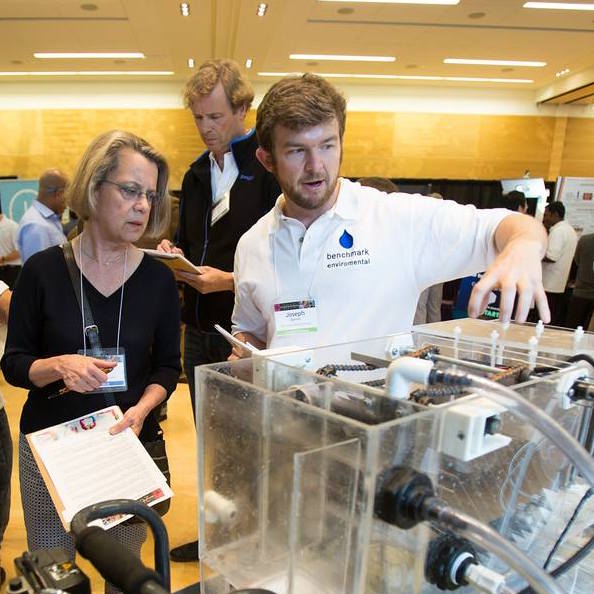From Service to School: Resources for Veterans interested in the Foster MBA Programs
If you’re a veteran interested in pursuing a full-time MBA, here’s a great guest post from Joe Dennis (Class of 2016), a former Army Captain and the 2015-2016 President of the Foster Veterans Association, with advice on how to make the transition from service to school. The military veteran community here at Foster is pretty tight, and we were in your shoes 1-2 years ago. I had some reservations about choosing the right school, but I met with other veterans at Foster and I knew that I had to come here. I hope this helps with your transition! – Nelson Tang, USAF 2006-2014

Image Credit: UW Buerk Center of Entrepreneurship
The Value of an MBA
Whether you are still on active duty, a reservist, or a separated/retired military veteran, an MBA can empower you by teaching you new ways to approach and analyze problems, or build your network to springboard your career switch. Military members excel at Foster by bringing maturity, leadership experience, and work ethic to the program. Here’s a guide to help you become part of the Foster family.
Application:
GMAT: Plan to take the GMAT twice (almost everyone I know took 2 tests to get their best score). Also, I recommend taking a free GMAT practice test to judge where you stand as soon as possible. Come up with a study plan for the 2-3 months before your first GMAT test.
Application Theme: This took me a while to figure out and understand, but I think it is incredibly valuable. Your resume, essays, interview, etc. should follow a theme and have an agenda. It is up to you how heavy you’d like to lay it on, but I would suggest making sure they all are working in conjunction with each other in some way, shape, or form. This doesn’t necessarily mean they should all say the same thing, but each could fill a different role in your overall strategy. For example, you may want to emphasize your leadership skills through your resume, and fight against negative military stereotypes in one of your essays. This could be aligned with a strategy of selling yourself as a complete leader that is self-aware (just an example). Bottom Line: have a strategy. You’d be surprised how many people don’t do this.
Foster Culture: Foster and the other west coast MBA programs are known for collaboration rather than a competitive learning environment. My fellow classmates have been instrumental in my learning; practically tutoring me at times in subjects such as Corporate Finance and Accounting. On the flip side, I’ve also been thanked by multiple classmates for my help managing/driving team projects. At Foster, we learn from each other as well as from class. I’ve heard from friends at some other MBA programs that their teams were very much “sink or swim.” I don’t think there is necessarily anything wrong with a “sink or swim” competitive environment, but I feel that the collaborative environment has been more influential in my growth as a student. To each their own; but I’d just suggest making sure you know which environment you’re dealing with when applying to various schools. Also, Foster has some great clubs that can help enhance your academic learning; it would be a good idea to familiarize yourself with the clubs that interest you and think about how they might add to your educational goals and how you might want to contribute to them as well.
Paying for School:
The Foster programs participate in the Post 9/11 GI Bill program, and many veterans qualify for tuition waivers/ assistance from the UW. The UW is also a partner school for the Tillman Military Scholars Program so Foster students can apply. You can also consult the UW Veterans Center for more information and resources about financing.
Other Resources
Don’t forget to check out the Foster Veterans Association to see more about what current student veterans are doing and to reach out for more information. Finally, swing by the Husky United Military Veterans to connect with veterans on campus and hear more about what the UW is doing to help student veterans succeed.
About the Author
 Joe Dennis served 5 years as an Armor Officer in the Army, and developed leadership and planning skills through multiple positions and two deployments. Since transitioning from the Army, he has taken an active role in strengthening the veterans’ network in Seattle and helping veterans illustrate their unique value to potential employers. Joe’s MBA interests include operations and marketing, and he interned at Nike last summer in a supply chain role. Outside of school, Joe is an outdoor enthusiast and loves to hike, camp, and snowboard. Joe holds a B.S. in Economics from the United States Military Academy at West Point.
Joe Dennis served 5 years as an Armor Officer in the Army, and developed leadership and planning skills through multiple positions and two deployments. Since transitioning from the Army, he has taken an active role in strengthening the veterans’ network in Seattle and helping veterans illustrate their unique value to potential employers. Joe’s MBA interests include operations and marketing, and he interned at Nike last summer in a supply chain role. Outside of school, Joe is an outdoor enthusiast and loves to hike, camp, and snowboard. Joe holds a B.S. in Economics from the United States Military Academy at West Point.
